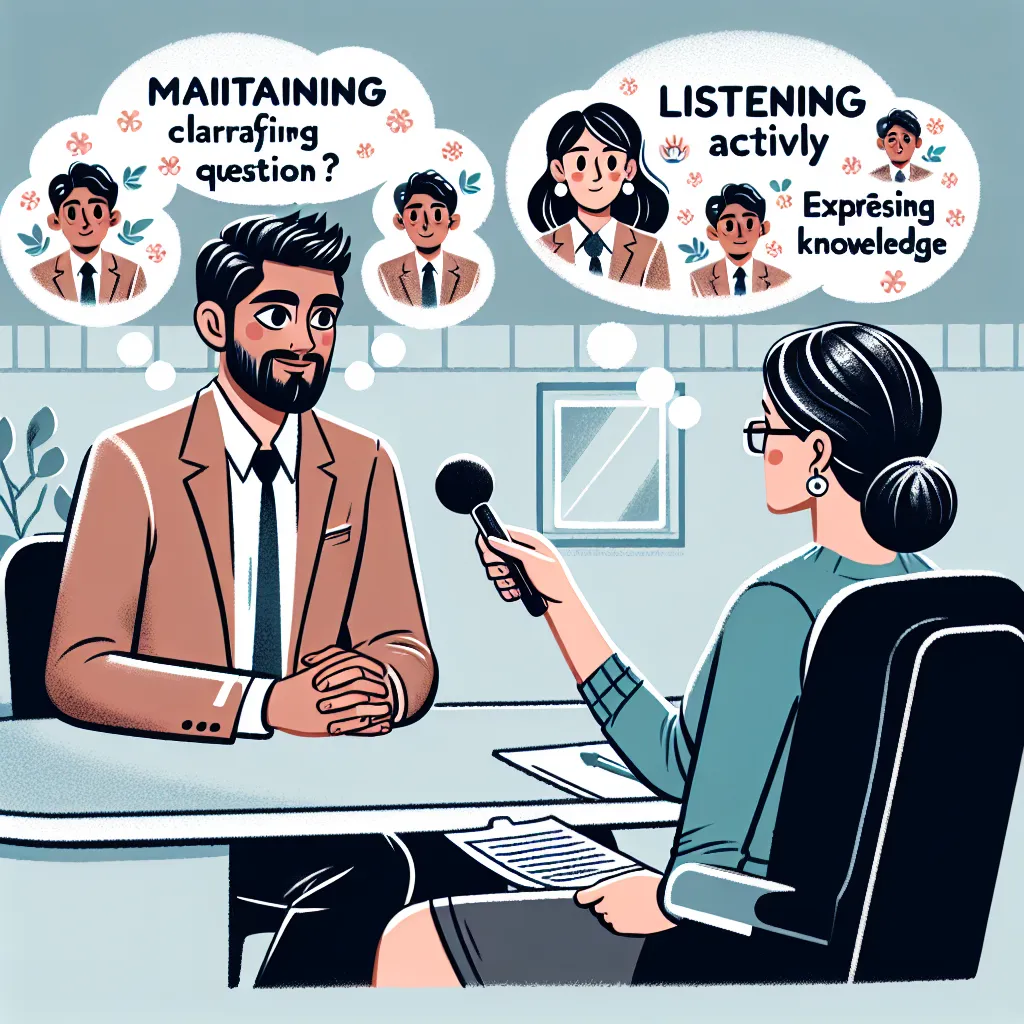Are you gearing up for a teaching interview? Whether you’re a fresh graduate or an experienced educator, preparing for a teaching interview is crucial to landing your dream job. This comprehensive guide will walk you through the essential steps to ace your teaching interview and stand out from the competition.
Understanding the Importance of Interview Preparation
Preparing for a teaching interview is not just about rehearsing answers to common questions. It’s about showcasing your passion for education, your teaching philosophy, and your ability to make a positive impact on students’ lives. A well-prepared candidate demonstrates professionalism, confidence, and a genuine interest in the position.
 Teacher preparing for interview
Teacher preparing for interview
The Interviewer’s Perspective
Understanding what interviewers are looking for can significantly improve your chances of success. Generally, they assess candidates based on:
- Subject knowledge and expertise
- Teaching methodology and classroom management skills
- Communication and interpersonal skills
- Enthusiasm and passion for teaching
- Adaptability and problem-solving abilities
By keeping these factors in mind, you can tailor your responses to highlight your strengths in these areas.
Essential Steps to Prepare for Your Teaching Interview
1. Research the School and District
Before your interview, gather as much information as possible about the school and district. This includes:
- The school’s mission and values
- Recent achievements or challenges
- Curriculum and teaching methodologies
- Student demographics
- Extracurricular activities
This knowledge will help you tailor your responses and demonstrate your genuine interest in the position.
2. Review Your Teaching Philosophy
Be prepared to articulate your teaching philosophy concisely. Consider questions like:
- What are your core beliefs about education?
- How do you approach classroom management?
- What teaching methods do you prefer and why?
- How do you address diverse learning needs?
Having a clear understanding of your teaching philosophy will help you answer questions confidently and consistently.
3. Prepare for Common Interview Questions
While every interview is unique, there are some common questions you’re likely to encounter. Here are a few examples with suggested approaches:
-
“Why do you want to teach at our school?”
- Highlight specific aspects of the school that align with your teaching philosophy and career goals.
-
“How do you handle classroom discipline?”
- Describe your proactive approach to classroom management and provide specific examples of how you’ve dealt with challenging situations.
-
“How do you differentiate instruction for diverse learners?”
- Explain your strategies for adapting lessons to meet various learning styles and abilities, providing concrete examples from your teaching experience.
-
“Can you describe a lesson that didn’t go as planned and how you handled it?”
- Use the STAR method (Situation, Task, Action, Result) to structure your response, focusing on your problem-solving skills and adaptability.
-
“How do you incorporate technology into your teaching?”
- Discuss specific tools and platforms you’ve used, explaining how they enhance student learning and engagement.
Remember to practice your responses out loud, but avoid memorizing them word-for-word. Aim for natural, confident delivery.
4. Prepare a Teaching Demo or Portfolio
Many teaching interviews include a demo lesson or a request to present your teaching portfolio. Be ready with:
- A brief, engaging lesson plan that showcases your teaching style
- Examples of student work and assessments
- Evidence of professional development and continuing education
Your portfolio should highlight your strengths and accomplishments as an educator.
5. Dress Professionally and Arrive Early
First impressions matter. Choose attire that is professional and appropriate for the school environment. Plan to arrive at least 15 minutes early to allow time for unexpected delays and to compose yourself before the interview.
Handling Challenging Interview Scenarios
Answering Questions Outside Your Expertise
If you’re asked a question you’re not fully prepared for, consider these strategies:
- Be honest about your limitations, but express eagerness to learn.
- Relate the question to an area you are knowledgeable about.
- Describe your approach to finding information or solving problems in unfamiliar areas.
For example, if asked about a teaching method you’re not familiar with, you might say: “While I haven’t had direct experience with that specific method, I’m always eager to learn new approaches. In similar situations, I’ve found that researching best practices and collaborating with colleagues has helped me quickly adapt and implement new strategies effectively.”
Common Mistakes to Avoid in Teaching Interviews
- Lack of specific examples: Always back up your claims with concrete examples from your teaching experience.
- Negative talk about previous employers or students: Focus on positive experiences and learning opportunities.
- Overlooking the importance of cultural fit: Show genuine interest in the school’s culture and community.
- Failing to ask thoughtful questions: Prepare insightful questions about the school and position to demonstrate your interest and engagement.
- Neglecting to follow up: Send a thank-you note or email within 24 hours of the interview.
By avoiding these pitfalls, you’ll present yourself as a professional, positive, and engaged candidate.
 Teacher answering interview questions
Teacher answering interview questions
Follow-up Questions and Suggested Responses
Here are some additional questions you might encounter, along with tips for crafting strong responses:
-
“How do you stay current with educational trends and best practices?”
- Discuss professional development activities, educational conferences, and how you incorporate new research into your teaching.
-
“Describe a time when you had to work with a difficult colleague. How did you handle it?”
- Use the STAR method to describe a specific situation, emphasizing your communication and problem-solving skills.
-
“How do you involve parents in their child’s education?”
- Explain your communication strategies and give examples of successful parent-teacher collaborations.
-
“What’s your approach to assessment and grading?”
- Discuss your philosophy on formative and summative assessments, and how you use data to inform your teaching.
-
“How do you create an inclusive classroom environment?”
- Describe specific strategies you use to ensure all students feel welcomed and valued, regardless of their background or abilities.
Remember to tailor your responses to the specific school and position you’re applying for, and always provide concrete examples from your teaching experience.
Conclusion
Preparing for a teaching interview requires thorough research, self-reflection, and practice. By following these guidelines, you’ll be well-equipped to showcase your skills, passion, and potential as an educator. Remember, the interview is not just about proving you’re qualified for the job—it’s an opportunity to demonstrate how you can contribute to the school’s mission and make a positive impact on students’ lives.
As you prepare, consider exploring additional resources on interview techniques and professional development. Our articles on how to prepare for a research interview and how to answer behavioral interview questions offer valuable insights that can be applied to teaching interviews as well.
Good luck with your interview preparation, and don’t forget to share your experiences or ask questions in the comments below!




